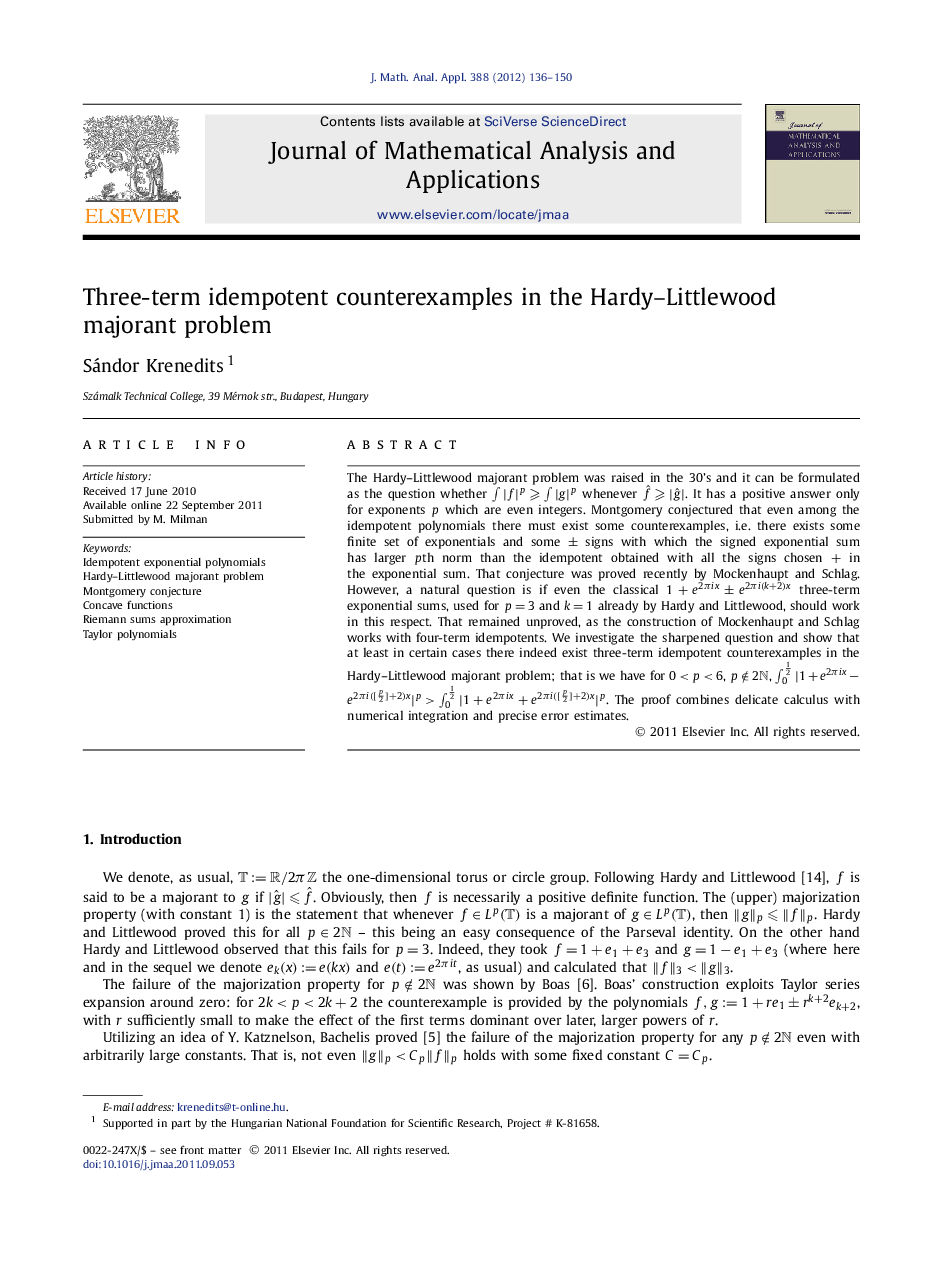| Article ID | Journal | Published Year | Pages | File Type |
|---|---|---|---|---|
| 4617576 | Journal of Mathematical Analysis and Applications | 2012 | 15 Pages |
The Hardy–Littlewood majorant problem was raised in the 30ʼs and it can be formulated as the question whether ∫p|f|⩾∫p|g| whenever . It has a positive answer only for exponents p which are even integers. Montgomery conjectured that even among the idempotent polynomials there must exist some counterexamples, i.e. there exists some finite set of exponentials and some ± signs with which the signed exponential sum has larger pth norm than the idempotent obtained with all the signs chosen + in the exponential sum. That conjecture was proved recently by Mockenhaupt and Schlag. However, a natural question is if even the classical 1+e2πix±e2πi(k+2)x three-term exponential sums, used for p=3 and k=1 already by Hardy and Littlewood, should work in this respect. That remained unproved, as the construction of Mockenhaupt and Schlag works with four-term idempotents. We investigate the sharpened question and show that at least in certain cases there indeed exist three-term idempotent counterexamples in the Hardy–Littlewood majorant problem; that is we have for 0
